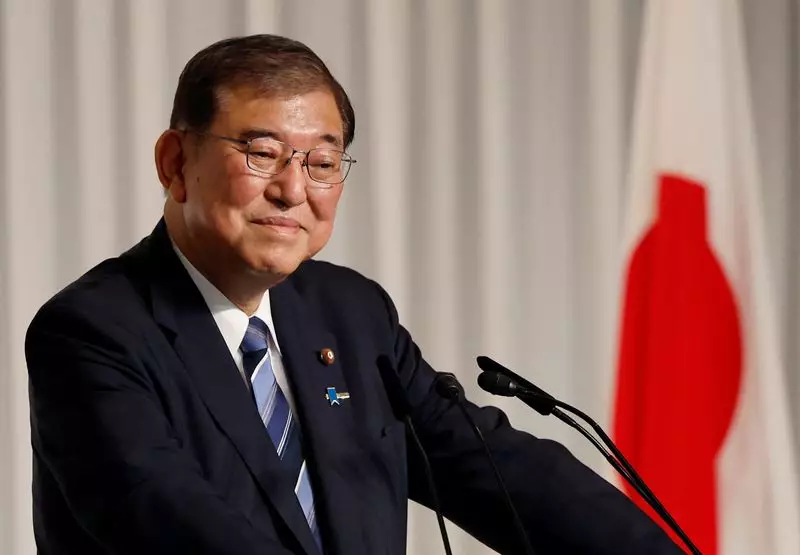With Shigeru Ishiba poised to take the helm of Japan as the new prime minister, the landscape of the nation’s monetary policy appears to be on the cusp of evolution. Having emerged victorious from the ruling Liberal Democratic Party leadership race, Ishiba’s approach to fiscal and monetary policy signals a nuanced continuity with existing frameworks rather than a radical departure. As Japan grapples with the consequences of a long-standing economic malaise—marked by sluggish growth and persistent deflation—the insights and strategies of its incoming leader are poised to wield substantial influence over the future direction of the economy.
Ishiba’s recent statements reflect an awareness of the complexities surrounding Japan’s monetary policy. He has explicitly indicated a preference for maintaining a loose monetary approach, which has been a mainstay for the Bank of Japan (BOJ). However, he also recognized the critical role of the central bank in achieving price stability, suggesting a hands-off approach when it comes to direct intervention in interest rate decisions. Ishiba’s emphasis on allowing the BOJ to navigate the monetary landscape signals a strategic aversion to overstepping boundaries set by economic expertise. This delicate balance between supporting the central bank and advocating for economic stimulation could prove vital as Japan seeks to emerge from the shadows of prolonged stagnation.
One of the most pressing challenges Ishiba inherits is the relationship between inflation, wage growth, and consumer spending. He underlined the importance of households being insulated from rising inflation—a factor that has eroded purchasing power for many Japanese citizens. The former defense minister’s commitment to accelerating policies aimed at boosting household incomes shines a light on the urgent need for revitalizing consumption. As Ishiba candidly pointed out, the nation’s GDP has stagnated for two decades, with wage increases failing to keep pace with inflation. It becomes increasingly clear that lifting consumer spending is not just a component of recovery; it is a prerequisite for economic vitality.
Ishiba’s leadership could mark a fundamental shift away from the legacy of “Abenomics,” the economic policies championed by former Prime Minister Shinzo Abe. This pivotal change is built on the premise that aggressive monetary stimulus needs a companion strategy aimed explicitly at fostering a sustainable economic environment. The anticipated normalization of monetary policy, guided by Ishiba’s outlook, suggests an environment in which the BOJ may feel emboldened to make necessary adjustments without the constraints characteristic of Abenomics. Analysts have posited that with Ishiba’s perspective, the BOJ is likely to be freed from historical roadblocks, creating clearer avenues for potential interest rate hikes.
As Ishiba prepares for his transition into leadership, discussions surrounding economic stimulus packages are already surfacing. His planned strategies, which may include measures to address rising food and fuel prices, demonstrate an understanding of immediate concerns facing Japanese households. Funded by a supplementary budget, these initiatives could foster a feeling of resilience in a population weary from economic fluctuations. Furthermore, enhancing consumer confidence through targeted interventions could ultimately encourage spending and combat inflationary pressures.
As Japan’s incoming prime minister, Shigeru Ishiba stands on the precipice of profound change. His ability to navigate the delicate balance between fiscal stimulus and central bank independence will shape not only immediate economic outcomes but will also determine the long-term trajectory of Japan’s economy. While challenges abound, his commitment to fostering wage growth and revitalizing consumer demand offers a glimmer of hope in an otherwise troubled economic landscape.
Navigating these waters will require a keen understanding of the global economic climate and its implications for domestic recovery. As Ishiba assumes leadership, the world will be watching closely, anticipating how his strategies and policies will spur an era of revitalization for a nation striving to reclaim its economic vitality.

